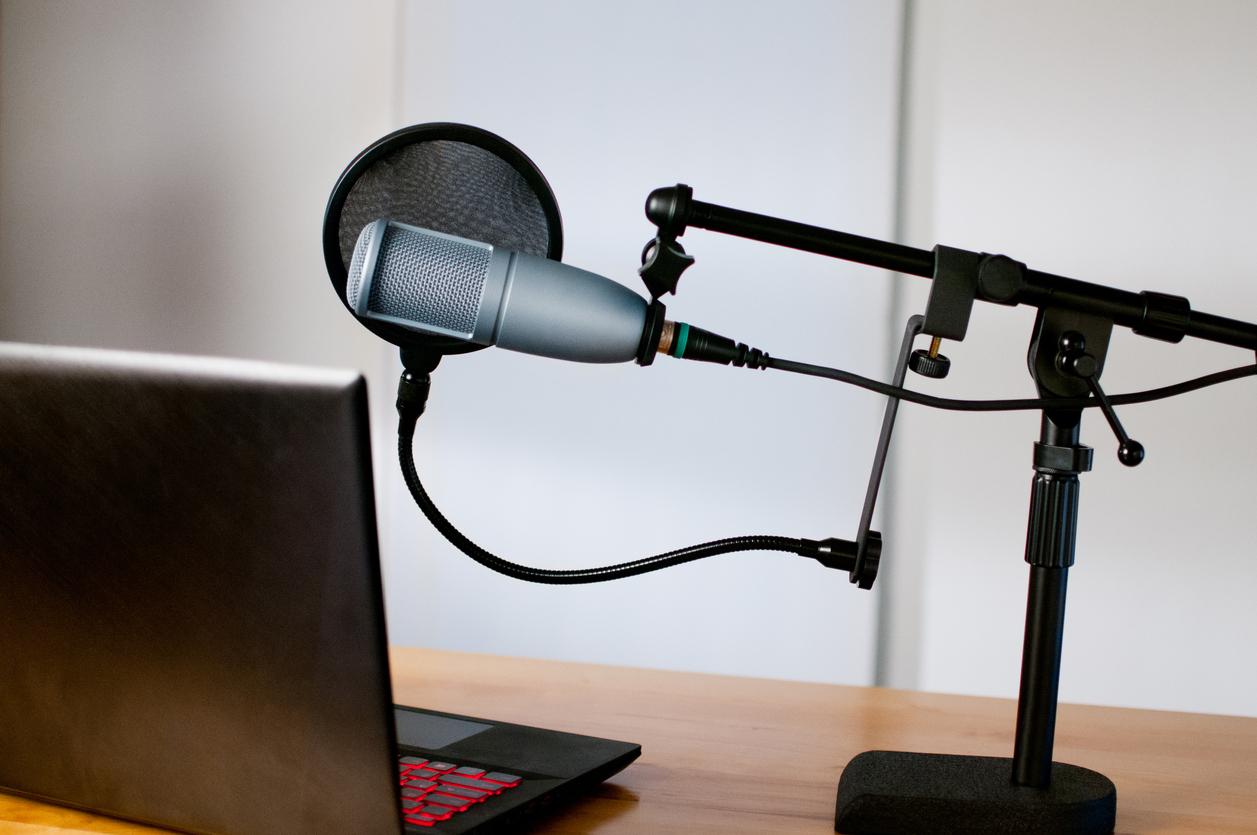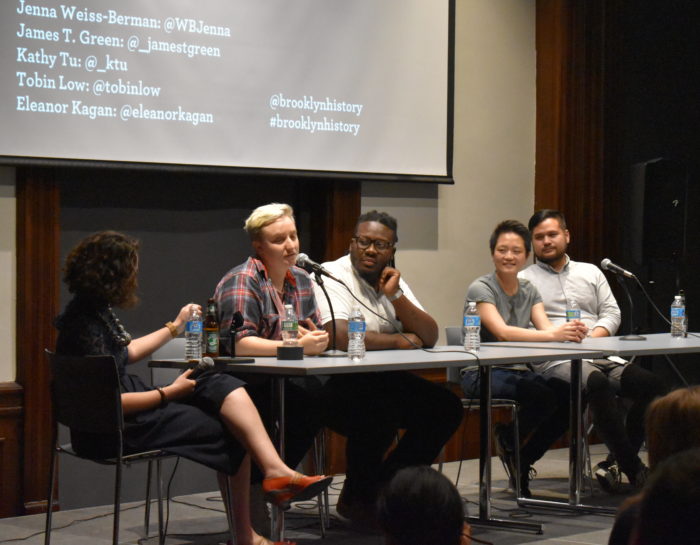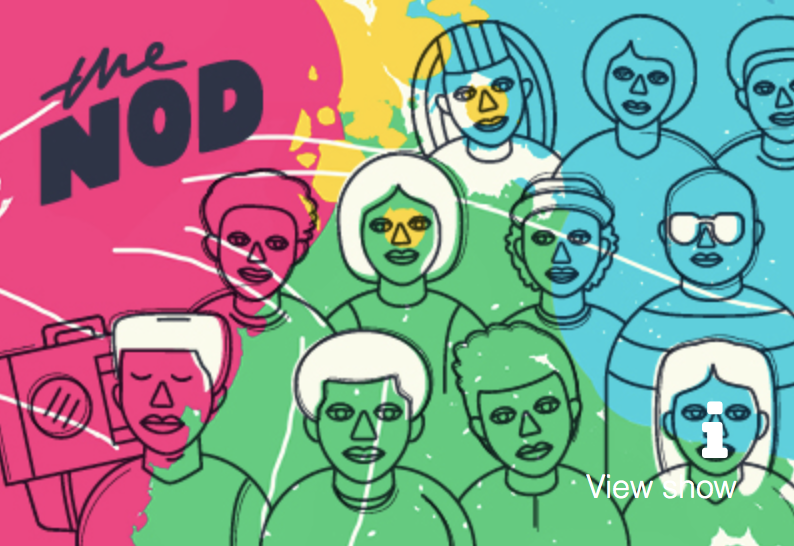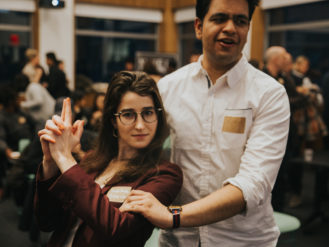How Podcasting Is Getting Richer (and Richly Diverse)
As the new industry soars in Brooklyn, a panel of pioneers gives an inside look at what makes it so appealing
(Photo by Stephanie Phillips/iStock by Getty Images)
In a media world brought low by disruption, Jenna Weiss-Berman is stoked to be working in a part of the business having a rocket-fueled rise. “The way the industry has changed is the most exciting thing in the world,” she said last week. Weiss-Berman is a pioneering podcaster who, after a successful career chapter at BuzzFeed making hit shows with the likes of Lena Dunham, last year launched the Brooklyn-based podcasting company Pineapple Street Media.
Weiss-Berman has plenty of company in New York City, which last month declared itself the “podcasting capital” of the U.S. According to a report from the Mayor’s Office and Media and Entertainment, programs produced by the four largest NYC-based networks–WNYC, Gimlet Media, Slate/Panoply and Midroll–produce almost 200 podcasts, up nearly 75% from 2015, and employ nearly 600 people. Among the two Brooklyn-based companies, Gimlet and Slate/Panoply, the former has raised $20 million in venture capital in recent weeks, a sure sign that podcasting has arrived as an industry with a future.
Yet even as big money pours in, one of the enduring lessons of podcasting’s success is that its relatively low cost of production has fostered experimentation and inclusion. Until not long ago, podcasting’s audience was primarily “white, male and straight,” said Eleanor Kagan, Buzzfeed’s director of audio and the moderator of a panel last week at the Brooklyn Historical Society titled A Mic for Every Voice: the Podcast Revolution. But now the medium is becoming more diverse, as the composition of the panel indicated, with representation by women, people of color and the LGBTQ community. James T. Green, producer of Gimlet’s The Nod, recalls working in the tech world and craving a new kind of programming. “I Googled ‘black podcasts’ because I was sick of listening to a bunch of white dudes.” He discovered This Week in Blackness, which he said “was like being with family.” Among the other revelations explored by the panelists:

Last week’s podcasting panel: from left, moderator Kagan, Weiss-Berman, Green, Tu and Low (Photo by Steve Koepp)
On podcasts, outsiders become insiders: Tobin Low, co-host of WNYC podcast Nancy, where he and his co-host Kathy Tu describe themselves as “super queer, super fun,” says he was inspired by the freewheeling podcast Another Round. “It created a world in which they didn’t have to stop and define terms,” he said. “You as the host can define the world and what it’s for.”
Podcasts can fly under the radar, to a degree: Nancy co-host Tu recalls pitching their show after WNYC put out a call for new podcast ideas. They won a Shark Tank-like contest–and then WNYC let them run with their ideas. “I had a distrust of large organizations,” Tu said, “but I was pleasantly surprised they let us do almost everything we wanted.”
Podcasting has attracted people who are new to media: Tu said she had been in law school, devoting more time to podcasts than her studies. Low was a professional cellist, which “wasn’t doing it for me any more.” One day, on a visit with his psychotherapist, he started talking about the pioneering show Radiolab. “The therapist said, ‘Tobin, this is the most excited I’ve ever seen you.”
Hollywood has discovered podcasting as a kind of farm-team system: Studios can hunt among podcasts for shows that could be turned into movies or TV series, or commission a new podcast to see if the idea works. “We can create ten episodes for much less than it would cost to make a TV series,” said Weiss-Berman. Homecoming, a podcast about a fictional secret agency that became a hit on Gimlet, has been snapped up by Amazon for a two-season series starting Julia Roberts. Unlike Hollywood, podcasting is still of world of “wacky ideas,” said Green. “I’m down for it. It’s a low-cost way of trying something out.”
Yet podcasting is competitive. Weiss-Berman observed that “there are over 400,000 podcasts on iTunes,” which can make it hard to be discovered, or hard to win a devoted following. “One hardcore podcast fan might listen to six a week,” she said, “and to succeed, I’ve got to kick out one of the six.” Said Low: “Everything has to be the best you’ve ever heard” to stand out, yet good programs need time to evolve.
Communities form among devoted podcast listeners. Kagan pointed out that Another Round inspired a book club that communicates via the Slack platform. People who may have felt marginalized feel a new connection. Said Low: “Our favorite emails are from people who felt isolated,” but now feel they’re part of a queer community.

The hosts of The Nod, a new podcast from Gimlet Media, “gleefully explore all the beautiful, complicated dimensions of Black life,” the company says
Podcasts are fairly troll-resistant. “There are a lot fewer trolls than in other businesses,” said Weiss-Berman. “In order to troll a podcast you have to listen to them for an hour and it’s a lot of effort to spend on someone you hate. That’s part of why podcasting is appealing for queers and people of color—it’s a lot harder to be terrible people” to them. Podcasts listen to feedback from the public, but with a filter for fakers. “You can tell if someone has actually listened, vs. responding to what they think you said,” noted Low. “You can just smell it.”
Identity-group shows need to be about something more. When one critic sent the Nancy producers a message asking, “Are you just going to talk about being gay in every episode?,” Low’s answer was a resounding “Yes!” Even so, the hosts decided never to focus on someone “who simply defines oneself. It always has to be about something else too. We want great stories that just happen to be about queer people and people of color.” To that end, the show has a freelance budget to “bring in people who are outside our limitations.” The podcast has just launched a new season focusing on what it’s like to be out at work.
Podcasts still aren’t as diverse as they could be. “Looking at this panel, we’re all about the same age. We’re taking up a lot of room,” said Green, who said he’s experimenting with a new show starring comedians in their 50s and 60s. They’re “hilarious,” he said, with a touch of surprise. Green, who moved to New York from Chicago nine months ago, said he’d also like “to see more podcasts that don’t use Middle America as a punch line.” The creative community in New York, he said, “is not a bubble but it’s very centralized in Brooklyn.”
Podcasters want their medium to be taken seriously. Green said he’s tired of seeing his industry covered in other media mostly with “top 10, top 20, top 50 lists of podcasts,” he said, which “feels like junk food in a way.” He’d prefer more serious criticism. Weiss-Berman, for her part, applauded the attention that New Yorker writer Sarah Larson has focused on the new medium with her columns in the Podcast Dept. “She wrote one criticizing my show and I realized, ‘Oh, yeah,'” that the critic had a good point.
Being a podcast producer is a solid career track these days. It’s a valuable skill set and producers can make real money. One small survey found the average salary at podcasting companies to be more than $78,000. Green, who says he feels a responsibility to bring newcomers along, has two people he considers mentors and two who are mentees. The barriers to entry are still low, notes Weiss-Berman, “So I hope more and more people will start grabbing microphones and doing this thing.”
You can listen here to The Bridge’s new podcast From Day One: How 12 Brooklyn Entrepreneurs Got Their Start.













